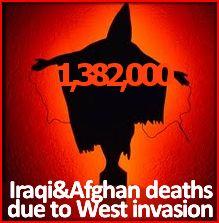Today is the 17th of Ramadan – a day which marks the anniversary of the Battle of Badr. I’ve taken the liberty of uploading a powerpoint which I delivered a few years ago, to accompany the write up.
The Battle of Badr was fought on the 17 Ramadan 2AH, or March 17 624 CE, and was fought some 80 miles southwest of Medina in modern day Arabia.
This was a key battle in the early days of Islam and proved to be a turning point in Islam’s struggle with its oppressive opponents, amongst them the Quraysh in Makkah. I have also covered the Battle of Badr in my “Understanding The Quran” series – Qur’an Juz’ 9 – Al A’raf 88 – Al Anfal 40
Prophet Muhammed Salla’Al-lahu Alayhi Wa Sallam (Arabic salutation “may the peace and blessings of Allah be upon him”) led 313 of the Sahaba (the original companions of the Prophet SAW) against a Pagan Makkan army that stood a thousand men strong.
The Muslims were an “army” in name only and it is said that they were in possession of only two horses and seventy camels. They did not have ample provisions, proper camping facilities, good clothing or arms. Most of them were young men with no military experience. The poorly equipped Muslims, enfeebled by the afflictions they had been enduring till then, presented a pitiful contrast to the Makkan army which consisted of a well drilled war machine. The Makkans, led by the house of Quraysh had 700 camels and 200 cavalry (armoured men on horseback) at their disposal. If that wasn’t enough the pagan Makkan army occupied the higher ground and held the upper hand against the Muslims.
Against such formidable odds, Allah granted victory to the Muslims.
Divine Victory
The victory at Badr was achieved with Divine Help from Almighty Allah. It was a joyous and spiritual victory of Haqq (Truth) over Baatil (Falsehood), achieved with Divine intervention. The Glorious Quran speaks about this battle of Truth over Falsehood:
Persecution Due to Their Beliefs
The importance of the Battle of Badr cannot be over-estimated. In the struggle against the Makkan oppressors it was an event after which the early Muslim community felt itself free to make rapid advances.
Some of our detractors will have us believe that it was the Muslims who went on the offensive. To them we state the facts.
The primary cause of the Battle of Badr lay in the determination of the Quraysh and those that opposed Islam, who wished to destroy the Muslim community simply because they believed in one single God. If this was allowed to continue, the Makkans could foresee that the Muslims would pose a serious threat to their established power base and the prestige of the Quraysh, their gods and goddesses would diminish.
These tyrants not only confined themselves to verbal opposition to the Prophet (SAW), but also chastised the Muslims who followed his message. This was further compounded with trade and personal boycotts on the Prophet (SAW) and his family and the Muslims, leading to deplorable living conditions.
The Prophet (SAW) was publicly ridiculed and humiliated, including frequent throwing of filth on him in the street and while he prayed in the Ka’bah, and even had attempts made on his life. In spite of great hardships and no apparent support, the message of Islam kept all Muslims firm in their belief. The Prophet was asked by God to be patient and to preach the message of Qur’an. He advised Muslims to remain patient because he did not receive any revelation yet to retaliate against their persecutors.
When the persecution became unbearable for most Muslims, the Prophet advised them in the fifth year of his mission (615 CE) to emigrate to Abyssinia (modern Ethiopia) where Ashabah (Negus, a Christian) was the ruler. Eighty people, not counting the small children, emigrated in small groups to avoid detection. No sooner had they left the Arabian coastline, the leaders of Quraysh discovered their flight. They decided to not leave these Muslims in peace and immediately sent two of their envoys to Negus to bring all of them back. However, Negus allowed them to stay under his protection after he investigated Muslim belief and heard the revelations about Jesus and Mary (peace be upon them both), which appears in Chapter 19 of the Qur’an (entitled “Mary”). The emigrants were allowed freedom of worship in Abyssinia.
The effects of the three-year boycott left the Prophet with more personal sorrow when he lost his beloved wife Khadijah (Radia Allahu’anha, Arabic salutation, may Allah be pleased with her) and his uncle Abu Talib soon after the ban was lifted.
Right from the inception of the Islamic movement, the Prophet (SAW) and his followers were on the defensive, and they patiently endured all the hardships they faced.
When the Muslims finally migrated enmasse to Madinah, some 280 miles North of Makka, the Prophet (SAW) and Abu-Bakr Al-Siddeeq (Radia Allahu’anhu, Arabic salutation, may Allah be pleased with him) were the last to move.
Even when the Muslims had left their homes, possessions, businesses and livelihoods behind in Makka, the Quraysh and the pagans of Makka would not rest, and soon followed them to Madinah, where they fought the battle of Badr some eighty miles to the Southwest of Madinah.
When you are faced with the over whelming evidence, there is no possible way that anyone can state that it was the Muslims who were on the offensive.
What Lessons Can We Draw Today From This Event?
We have forgotten the lessons that were taught – that we have left behind the Fard (Obligation) of Jihad Fi Sabeel Allah.
The murderous attempts on the life of the Prophet (SAW) were carried out by a coalition. The Muslims were few in number so could never retaliate against all the tribes who had colluded to carry out such a despicable act. Most recently we see the same methods being used with coalition forces launching their illegal invasions and wars against Iraq and Afghanistan.
Looking at the economic and personal boycotts that the Muslims had to suffer, a distinct parallel can be drawn with the plight that the Palestinians currently face. The Palestinians democratically elected a government which for once had the true interests of the Palestinian people above any other. The Palestinian people have had to suffer economic blockades, being cut-off politically from the rest of the world, having their taxation revenue’s frozen and withheld. One can draw a parallel from the collective punishments that are meted out today, to the ones imposed on the Prophet (SAW) and the companions.
History Repeats Itself – Learn From It
You may have noticed a disturbing pattern emerging here. Everything that happens today has happened in centuries gone by. History has repeated itself.
We have abandoned the principle of the Defensive Jihad. We find ourselves attacked on a personal level. Our civil liberties are undermined continually with ever expanding “Anti-terror” legislations. We find ourselves being attacked on an institutional level. Whether it’s our Mosques and the Shaykhs that represent them, our Islamic schools or even bodies such as MPACUK and the MCBs and MABs of this world. Our institutions are incapable of defending themselves, nevermind the Ummah. So is it little wonder we are in the woeful predicament we find ourselves in?
The companions of Prophet Muhammed (SAW) had the privilege to view his conduct in person. They would have observed the way in which he conducted himself, the way he put into practice whatever he taught. The Holy Prophet Muhammed (SAW) was the leader of his house and his people. When the Muslims were commanded to pray, he would pray the most. When mosques were being built, he helped to build them. He didn’t stand back and ask for them to be constructed. There were never any luxuries, lavish palaces or plush residencies for him.
When the Muslims were being persecuted in Makkah, Prophet Muhammed (SAW) kept his composure and stayed amongst the Muslims enduring the same hardship. Whenever the Muslims had to defend themselves in battle he commanded the troops from the front. By comparison it is easy to witness today how many modern leaders act in a contradictory manner to their sayings. Politicians who lie and cheat are commonplace as are leaders of countries who engage in unnecessary wars. None of this was evident from the life of the Holy Prophet Muhammed (SAW).
We rightly hold our Prophet (SAW) as a light for us aspire to, as a true role model, but are we guilty of admiring his actions and not daring to walk in his footsteps?
Are we ready to put aside our minor differences and unite under “La ila-ha ill allah Muhammed-ur Rasoolullah” (There is none worthy of worship except Allah and Muhammed is the messenger of Allah).
The truth of the matter is that me must remain steadfast and never lose hope.
We have the power to change the situation. The question is: will we take the opportunity?
















